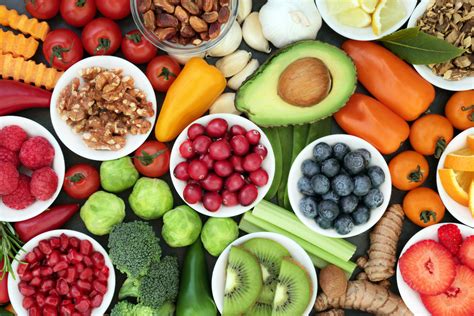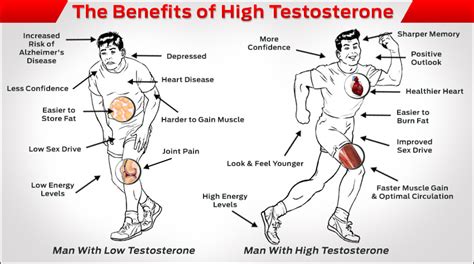How can men optimize testosterone for peak performance and vitality through diet?

Testosterone, often called the primary male sex hormone, plays a pivotal role in more than just libido and muscle mass. It influences energy levels, mood, bone density, cognitive function, and overall vitality. While various factors impact testosterone levels, diet stands out as one of the most accessible and potent levers men can pull to optimize this crucial hormone. By making informed food choices, men can significantly enhance their physical and mental performance, leading to a more energetic and vibrant life.
The Essential Dietary Pillars for Testosterone Production
To effectively boost testosterone, a man’s diet must provide the right building blocks. This isn’t about restrictive eating but rather about emphasizing nutrient-dense foods that support hormonal health.
Healthy Fats: Not All Fats Are Equal
Cholesterol, derived from dietary fats, is a precursor to testosterone. However, the type of fat consumed matters immensely. Focus on monounsaturated and polyunsaturated fats, which are vital for hormonal synthesis and cell membrane integrity.
- Avocados: Rich in monounsaturated fats and magnesium.
- Olive Oil: A cornerstone of the Mediterranean diet, packed with healthy fats and antioxidants.
- Nuts and Seeds: Almonds, walnuts, chia seeds, and flax seeds offer healthy fats, fiber, and micronutrients.
- Fatty Fish: Salmon, mackerel, and sardines are excellent sources of Omega-3 fatty acids, known for their anti-inflammatory properties and role in hormone production.

Lean Proteins: The Muscle and Hormone Builders
Adequate protein intake is crucial for muscle repair, growth, and overall body function, indirectly supporting testosterone levels. Opt for high-quality, lean protein sources.
- Grass-fed Red Meat: Provides cholesterol, zinc, and iron, all important for testosterone.
- Poultry: Chicken and turkey breasts are lean protein sources.
- Eggs: Especially the yolks, which contain cholesterol, vitamin D, and selenium.
- Legumes: Lentils and beans offer plant-based protein and fiber.
Micronutrients: The Unsung Heroes
Specific vitamins and minerals act as cofactors in testosterone production and regulation.
- Zinc: Critically important. Found in oysters (a powerhouse source), red meat, shellfish, and pumpkin seeds. Zinc deficiency is strongly linked to low testosterone.
- Vitamin D: More of a hormone than a vitamin, adequate levels are vital. Sunlight exposure is the best source, but dietary sources include fatty fish and fortified foods. Supplementation may be necessary.
- Magnesium: Contributes to free (bioavailable) testosterone levels by reducing its binding to sex hormone-binding globulin (SHBG). Rich sources include dark leafy greens, nuts, seeds, and whole grains.
- Vitamin K2: Found in fermented foods and certain animal products, it supports overall hormone health.

Foods to Embrace for Optimal Testosterone
Beyond the macronutrients and essential micronutrients, certain food groups offer additional benefits that directly or indirectly support healthy testosterone levels.
- Cruciferous Vegetables: Broccoli, cauliflower, Brussels sprouts, and kale contain indole-3-carbinol (I3C), which helps the body metabolize estrogen, preventing it from dominating testosterone.
- Garlic and Onions: Contain compounds like allicin which may help reduce cortisol, a stress hormone that can suppress testosterone.
- Berries and Colorful Fruits: Packed with antioxidants that combat oxidative stress, which can negatively impact hormone production.
- Ginger: Studies suggest ginger may help boost testosterone levels and sperm quality.

Dietary Choices That Can Undermine Testosterone
Just as some foods support testosterone, others can actively work against it. Limiting or avoiding these can be as important as incorporating beneficial foods.
- Processed Foods and Sugary Drinks: High in unhealthy fats, sugar, and often lacking in nutrients, they contribute to inflammation, weight gain, and insulin resistance, all of which can lower testosterone.
- Excessive Alcohol: Chronic heavy drinking can damage testicular cells, increase estrogen, and impair liver function, significantly reducing testosterone.
- Soy Products (in excess): While fermented soy can be beneficial, unfermented soy in large quantities contains phytoestrogens that may mimic estrogen in the body, potentially impacting testosterone balance. Moderation is key.
- Refined Carbohydrates: White bread, pastries, and white rice can lead to blood sugar spikes and insulin resistance, negatively affecting hormone profiles.
- Unhealthy Trans Fats: Found in many fried foods and baked goods, these fats are detrimental to overall health and can impair hormone function.

Beyond the Plate: A Holistic Approach
While diet is foundational, optimizing testosterone for peak performance and vitality requires a holistic perspective. Ensure adequate sleep (7-9 hours), engage in regular strength training and high-intensity interval training (HIIT), and manage stress effectively. These lifestyle factors work synergistically with a healthy diet to create an environment where your body can produce and utilize testosterone efficiently.

Optimizing testosterone through diet is a powerful strategy for men seeking to enhance their performance, energy, and overall well-being. By focusing on whole, unprocessed foods, prioritizing healthy fats, lean proteins, and essential micronutrients, and strategically avoiding testosterone-depleting items, men can lay a solid foundation for hormonal balance. Coupled with a healthy lifestyle, these dietary changes can unlock a new level of vitality and peak performance.









